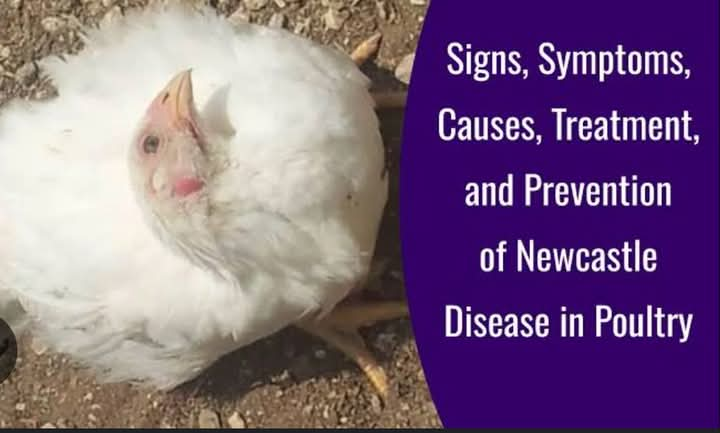POULTRY BIRDS
Newcastle Disease (ND) is a viral infection that primarily affects birds but can occasionally infect humans, though it is rare and usually mild in people. The disease is caused by the Newcastle disease virus (NDV), a paramyxovirus.
Causes:
Newcastle disease is caused by the Newcastle disease virus (NDV), which is highly contagious. The virus is transmitted through:
a) Direct contact with infected birds or their bodily fluids.
b) Feces from infected birds can contaminate feed, water, and the environment.
c) Aerosol transmission via respiratory secretions (sneezing, coughing).
c) Contaminated equipment or clothing that has been in contact with infected birds.
Symptoms:
Symptoms of Newcastle disease can vary depending on the strain of the virus and the species of bird infected. In general, they include:
In Chickens and Other Poultry:
1) Respiratory signs: Coughing, sneezing, nasal discharge, and difficulty breathing.
2) Nervous system signs: Tremors, paralysis, twisted necks (torticollis), and incoordination.
3) Digestive signs: Diarrhea, decreased egg production, and abnormal eggs (soft-shelled, misshapen).
4) Drop in egg production: In laying hens, there can be a sharp drop in egg production.
5) Swelling: Particularly around the head, neck, and eyes.
6) Sudden death: In severe cases, infected birds may die suddenly without showing any prior symptoms.
Newcastle disease can have a range of severity, from mild to fatal, depending on the strain and the age or health of the birds.
Vaccination is widely used in poultry to help control the disease.



